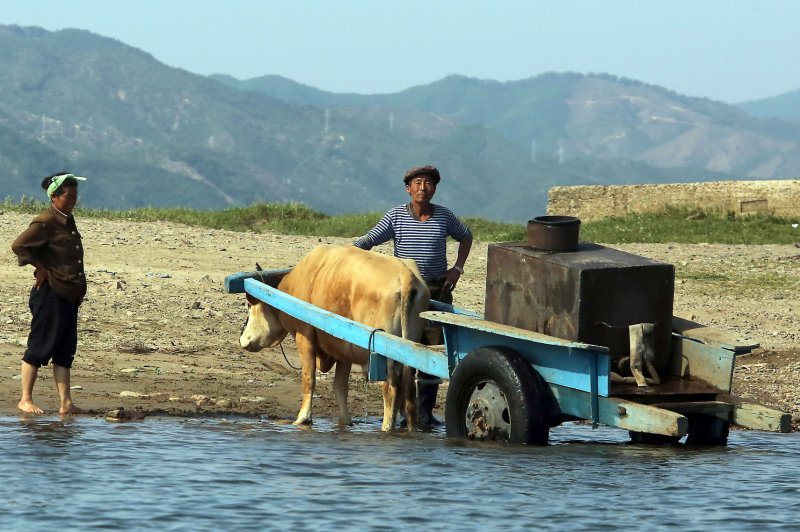
North Korea urged citizens to prepare for a “stronger heat wave” Friday. File Photo by Stephen Shaver/UPI | License Photo
July 16 (UPI) -- North Korea could be taking preventative measures against climate change by planting more trees and protecting crops from extreme heat as temperatures soar to record highs on the peninsula.
Korean Workers' Party paper Rodong Sinmun said Friday that preventing crop damage from heat waves is a "struggle to protect the lives and safety of the people."
"Party organizations at all levels inform us that a stronger heat wave is expected to affect our nation next week," the paper said. "Preventing damage is an important political project for the realization of decisions made at the [Eighth] Party Congress."
The Rodong is urging the country to prepare for extreme weather only days after North Korea's chairman of the State Planning Commission said in a report to the United Nations that "severe natural disasters hit the country every year" amid a worsening food situation.
The Party paper said Friday that workers must focus on "finding a water source" and then mobilize "all means of transportation" to water crops.
Last year, North Korea said typhoons and ensuing floods wiped out crops. The regime could be responding with tree planting initiatives.
Propaganda service Meari said Thursday that a "unique forestation" initiative was taking place in the city of Samjiyon in Yanggang Province. Birch, cypress and clove trees have been planted in the area that state media said was the "standard and exemplar" of a "modern mountain city."
Last year, North Korea said typhoons and ensuing floods wiped out crops. The regime could be responding with tree planting initiatives.
Propaganda service Meari said Thursday that a "unique forestation" initiative was taking place in the city of Samjiyon in Yanggang Province. Birch, cypress and clove trees have been planted in the area that state media said was the "standard and exemplar" of a "modern mountain city."
The Rodong reported in a separate article that various North Korean work units, including the Mangyongdae District Agricultural Machinery Workshop and the Ryusonamsae cooperative farm, were recognized for their "reforestation" efforts.
North Korea underwent a period of deforestation during the Great Famine of the '90s. Defectors in the South have said energy shortages forced people to burn wood for fuel.
Unsustainable clearing of forests also contributed to deforestation amid the food shortage, according to analysts.
No comments:
Post a Comment